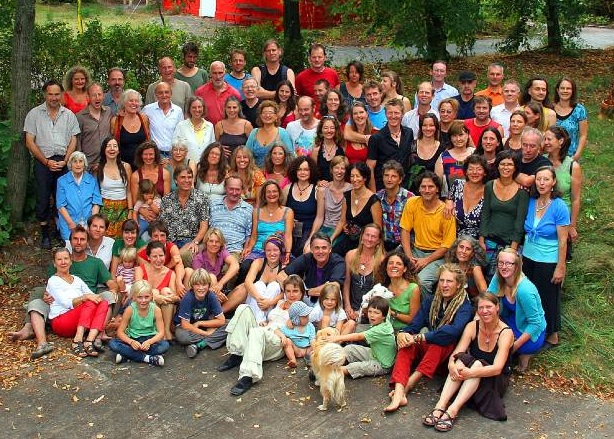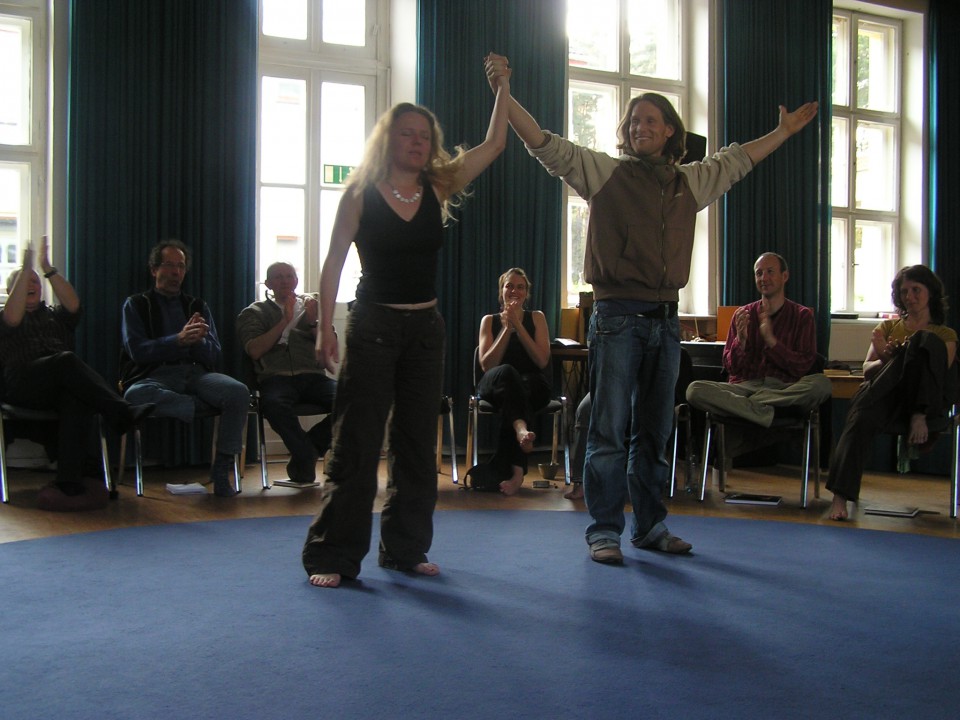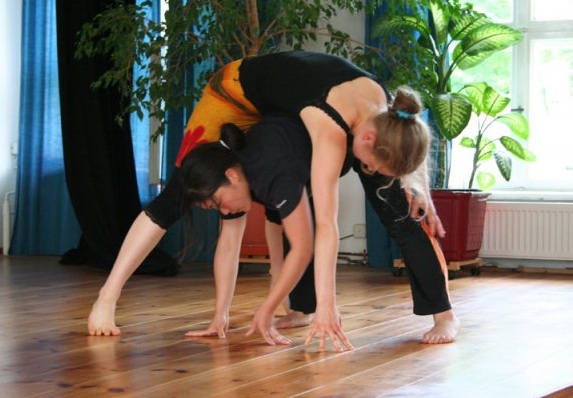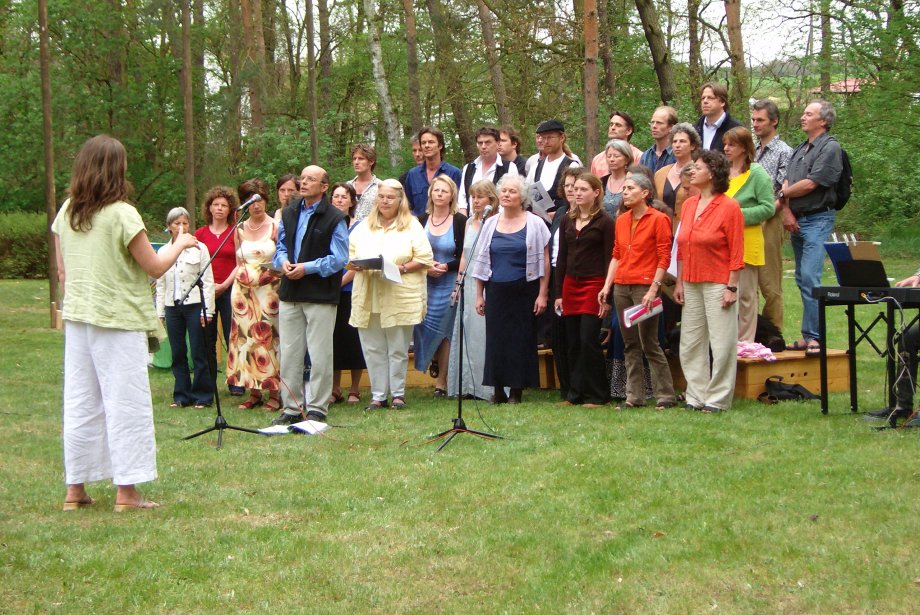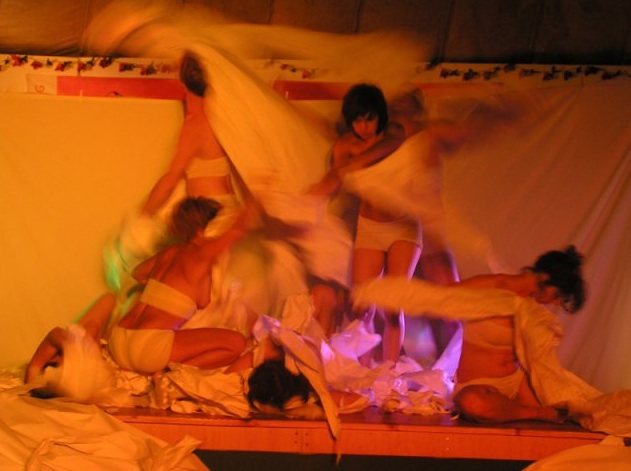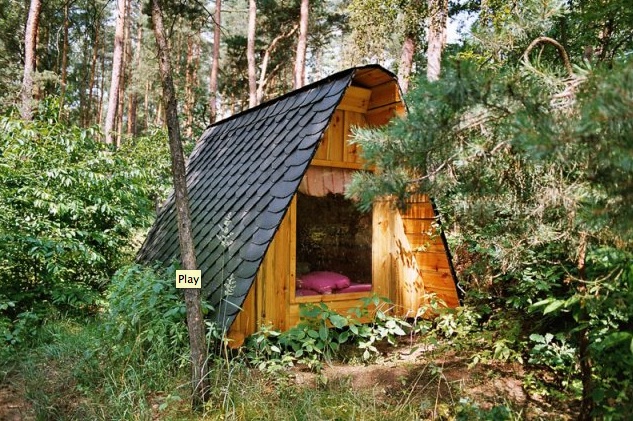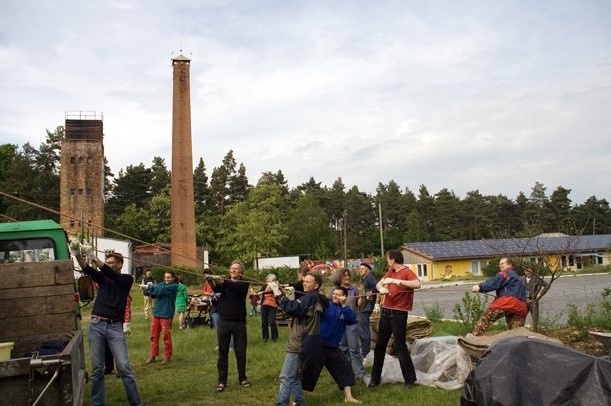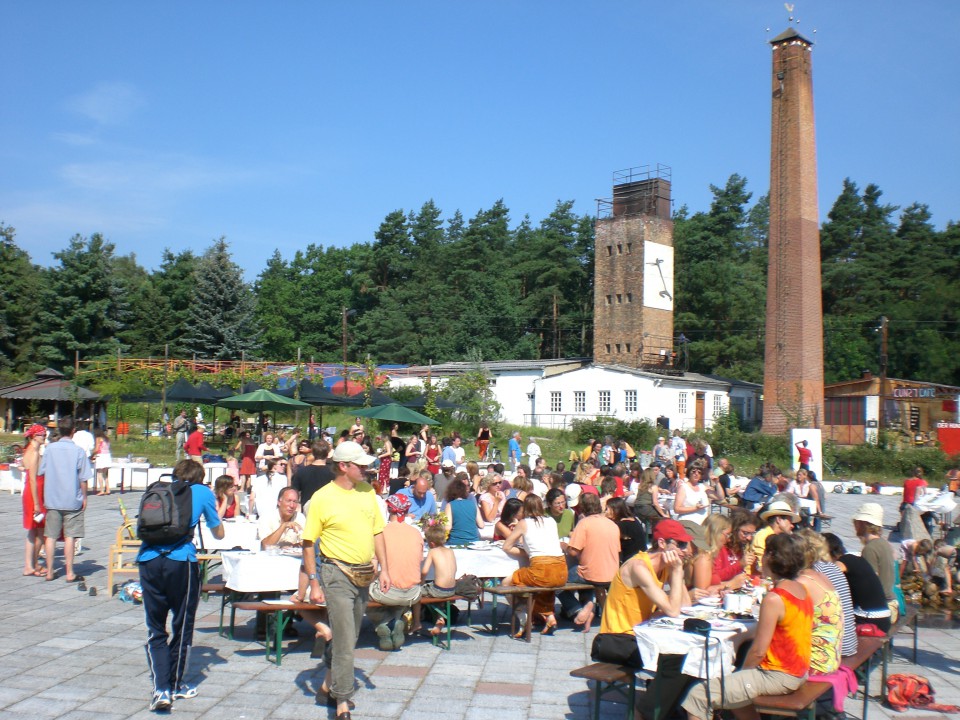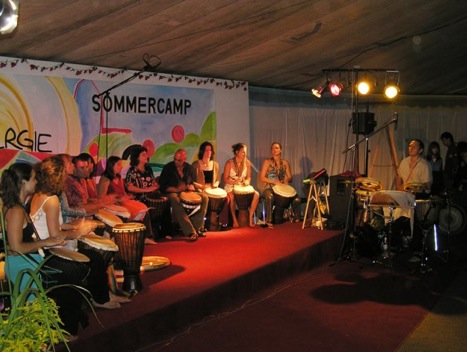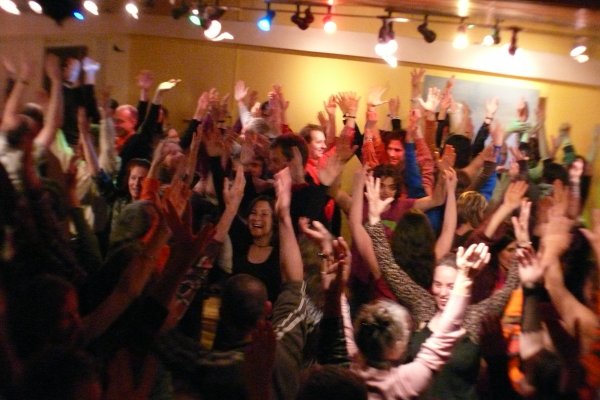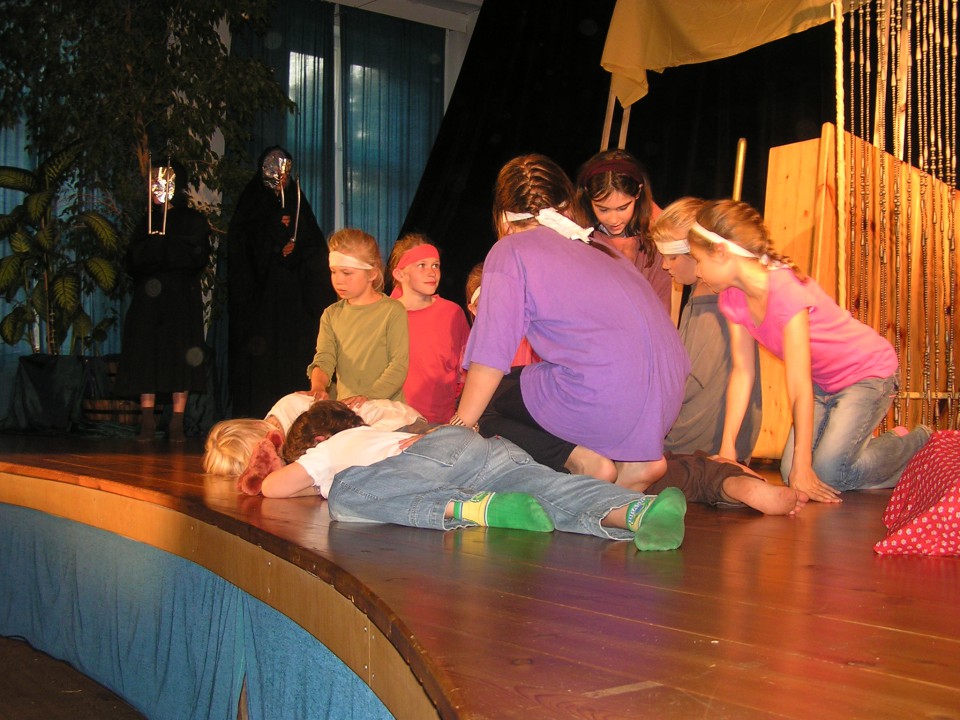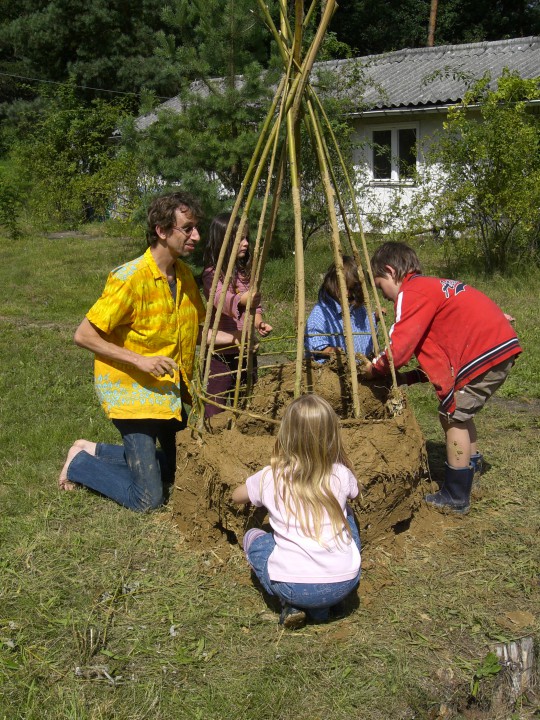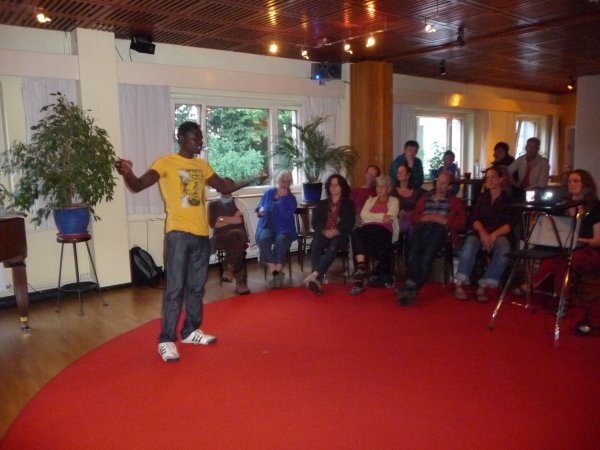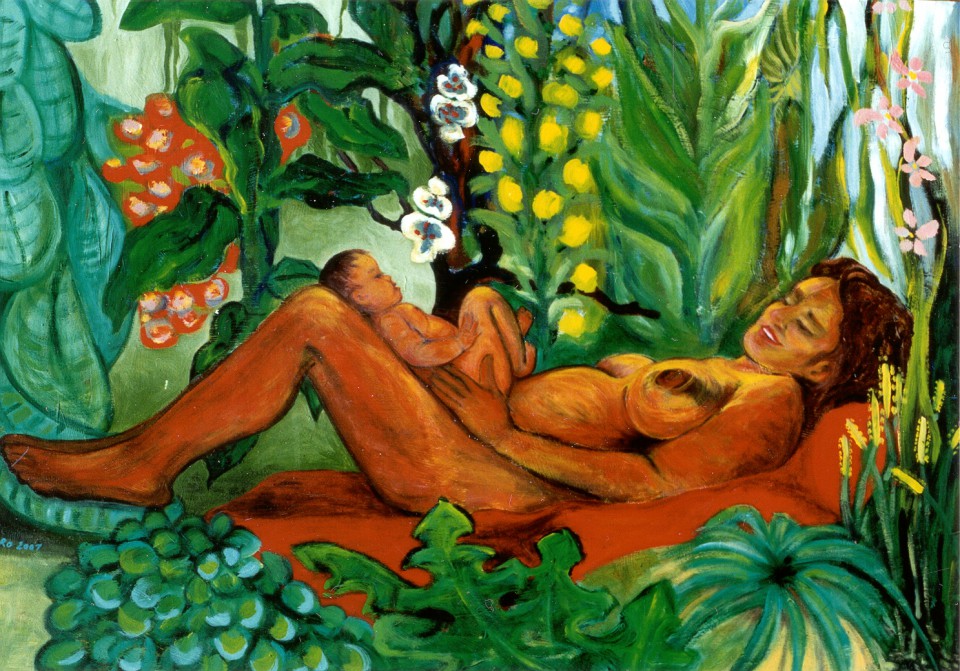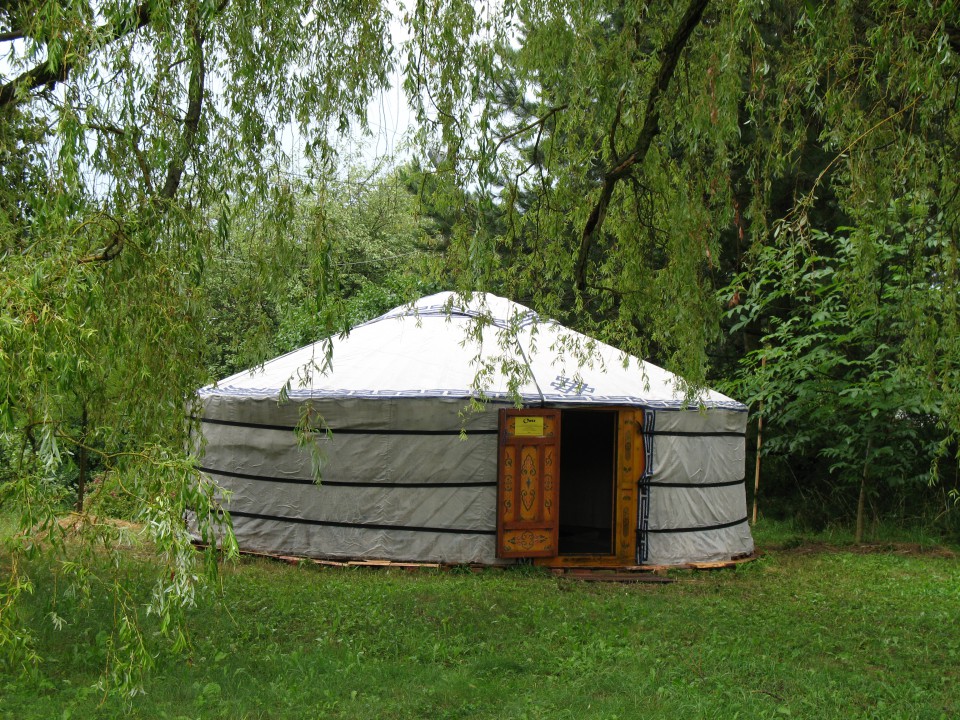ZEGG
Ninety minutes by train from Berlin, outside the town of Belzig, is ZEGG, the Center for Experimental Cultural Design (Zentrum für esperimentelle Gesellschaftsgestaltung).
As of 2011, ZEGG has 100 members, including 15 children.
Founded in 1991 on a former Nazi sports camp and East German secret police facility, ZEGG has regenerated the land and buildings with an ecological sewage treatment plant, carbon-neutral heating, thoroughly insulated buildings, and organic gardens.
ZEGG’s members believe that the life force of humanity, including our capacity for building a sustainable society, will only be liberated when we learn to take a non-possessive approach to sexuality.
I had strong reservations about visiting ZEGG, but many people with no interest in polyamorous lifestyles encouraged me—on the basis of ZEGG’s influence on the global communities movement—to go.
Having survived all manner of emotional upheaval among its members, ZEGG developed a group process called the Forum to explore highly charged feelings through dramatic enactments within a collective meditative space. The Forum has proven to be successful as well as portable. For the last 15 years, ZEGG has offered courses and seminars on the Forum for communities around the world as a tool for fostering greater self-awareness and social bonding.
Official website (in English): http://www.zegg.de/en/
News and photos from ZEGG http://www.zegg.de/en/news/news-from-zegg.html
